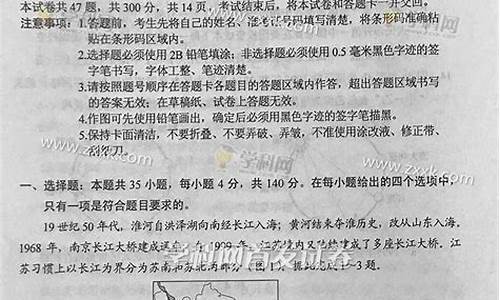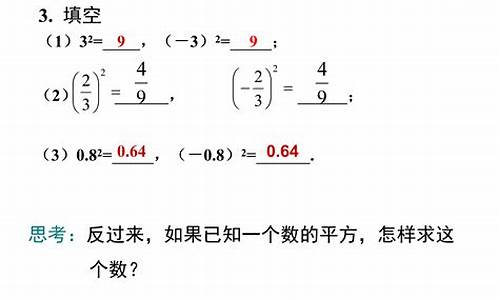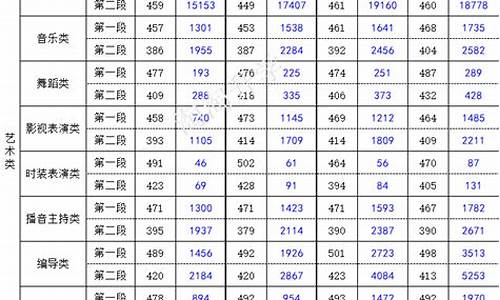高考答案宁夏2017英语-2020年宁夏高考英语卷
1.2017年高考英语词汇详解:persuade陷阱题解析
2.2017届全国100所名校最新高考模拟示范卷英语卷二的答案,谢谢,跪求
3.高考英语阅读理解训练
4.高考英语词汇详解:pain的用法整理
2017年高考英语词汇详解:persuade陷阱题解析

高考英语词汇详解:persuade陷阱题解析
persuade是“说服”还是“设法说服”呢?请看题:
I _____ him not to go abroad, but he wouldn’t listen.
A. persuaded B. tried to persuade
C. he persuaded D. was persuaded
陷阱 容易误选A。
分析 正确答案为B。persuade 的真正意思是“说服”,而不是“设法说服”,要表示后者的意思英语应用 try to persuade 。如:
Who persuaded you to join the club? 谁劝说好你参加这个俱乐部的?
The salesman persuaded us to buy his product. 推销员劝说好我们购买他的产品。
I couldn’t persuade him to change his mind. 我没法劝说他改变主意。
The salesman persuaded us to buy his product. 推销员说服我们买了他的产品。
Who persuaded you to join the society? 谁劝说你参加这个协会的?
Try as I would, I could not persuade him to give up the idea. 尽管我努力这样做,我却没能劝说他放弃这个想法。
He tried to persuade him to change his mind. 他设法劝说他改变主意。
I want to persuade her to overseas with me. 我想劝说她跟我到海外去。
类似地:
kill 的意思是“杀死”,不表示“设法杀死”,要表示后者的意思英语用 try to kill。
prevent 的意思是“阻止”,不表示“设法阻止”,要表示后者的意思英语用 try to prevent。
2017届全国100所名校最新高考模拟示范卷英语卷二的答案,谢谢,跪求
高考试题全国卷
高考试题全国卷简称全国卷,是教育部为未能自主命题的省份命题的高考试卷。分为新课标Ⅰ卷和新课标Ⅱ卷。
新课标Ⅰ卷的难度比新课标Ⅱ卷难度大。
小语种(日语/俄语/法语/德语/西班牙语)高考统一使用全国卷,各省均无自主命题权,且不分新课标Ⅰ卷和新课标Ⅱ卷。
新课标一卷
2015年前使用省份:河南 河北 山西 陕西(语文及综合)湖北(综合 )江西(综合)湖南(综合)
2015年增加使用省份:江西(语文 数学 英语)、山东(英语)
2016年增加使用省份:湖北、广东、陕西、四川、重庆、福建、安徽
新课标二卷
贵州 甘肃 青海 西藏 黑龙江 吉林 宁夏 内蒙古 新疆 云南 辽宁 海南(语文 数学 英语)
2015年增加省份:辽宁 (语文 数学 英语)
高考英语阅读理解训练
高考英语阅读理解精品训练2017
近几年高考英语阅读主要有猜测词义、理解主旨大意、推理判断、对文章的细节理解、 数据推算等几种题型。为了帮助大家备考高考英语阅读理解题,我分享了一些高考英语阅读理解练习,希望能对大家有所帮助!
阅读理解练习1
Not many years ago, a wealthy and rather strange old man named Johnson lived alone in a village in the south of England. He had made a lot of money in trading with foreign countries. When he was seventy?five, he ge ? 12,000 to the village school to buy land and equipment (设备) for a children?s playground.
As a result of his kindness, many people came to visit him. Among them was a newspaperman. During their talk, Johnson remarked that he was seventy-five and expected to live to be a hundred. The newspaperman asked him how he managed to be healthy at seventy?five. Johnson had a sense of humour (幽默). He liked whisky (威士忌酒) and drank some each day. ?I he an injection (注射) in my neck each evening.?he told the newspaperman, thinking of his evening glass of whisky.
The newspaperman did not understand what Johnson meant. In his newspaper he reported that Johnson was seventy?five and had a daily injection in his neck. Within a week Johnson received thousands of letters from all over Britain, asking him for the secret of his daily injection.
1. Johnson became a rich man through
A. doing business. B. making whisky. C. cheating. D. buying and selling land.
2. The gift of money to the school suggests that Johnson
A. had no children. B. was a strange man.
C. was very fond of children. D. wanted people to know how rich he was.
3. Many people wrote to Johnson to find out
A. what kind of whisky he had. B. how to live longer.
C. how to become wealthy. D. in which part of the neck to he an injection.
4. The newspaperman
A. should he reported what Johnson had told him.
B. shouldn?t he asked Johnson what injection he had.
C. was eager to live a long life.
D. should he found out what Johnson really meant.
5. When Johnson said he had an injection in his neck each evening, he really meant that
A. he liked drinking a glass of whisky in the evening.
B. he needed an injection in the neck.
C. a daily injection in the evening would make him sleep well.
D. there was something wrong with his neck.
阅读理解练习2?I?m very tired from working here,?said Jean to her friend Kate,? I?m on my feet from morning to night. For the first quarter of the day, I clean up the counter (柜台) and set the tables. For the next quarter, I help in the kitchen. For the second half of my workday, I take orders at the counters.?
?Kate, I wish I had your job,?Jean went on. ?For four hours you just sit at the cash register (收款台) taking in money.?
?But I spend two more hours in the kitchen (厨房) than you do,?said Kate. ?It?s tiring to cook over a hot stove. I don?t think you?d really want my job. In fact, I?d like your job.?
1. Both Jean and Kate probably work in a
A. hotel B. library C. lab D. shop
2. How long did they work every day?
A. eight hours B. twelve hours. C. Ten hours D. Nine hours
3. How long did Kate spend in the kitchen?
A. a quarter day. B. A half day. C. One-third day. D. Three-fourths day.
4. From this passage we can see that
A. they are both interested in their work. B. their work is neither tiring nor busy.
C. both of them are tired of their work. D. they?ve decided to give up their work.
5. Give a proper proverb (谚语) to Jean and Kate.
A. It?s never too late to learn.
B. It?s no use crying over spilt milk.
C. The grass is always greener on the other side.
D. One swallow(燕子) does not make a summer.
阅读理解练习3In 1985 a French television company sent its reporters to the Paris Metro. They took cameras to see what passengers would do if they saw someone attached on the platform or in the trains. They acted out incidents. The incidents looked real but they were all done with the help of actors. However, very few people tried to help, and most passengers pretended not to notice. in one incident, a foreigner was attacked by three men. The attack was on a train which was quite full, and although one man tried to get the passengers to help, they all refused. It seems that such behiour(行为) is not unusual, but the question is why? Is it a problem of big cities, or would the same thing hen anywhere? To discuss these questions, we he in the studio(演播室) Professor Wilson, who is an expert on the subject?
1. Who did the experiment?
A. A French television company. B. The Paris Metro.
C. The City Government of Paris. D. Professor Wilson.
2. What did the experiment try to find out?
A. How a foreigner was attacked on the train.
B. How passengers helped each other on the platform.
C. Passengers? reactions towards incidents.
D. Actors? performances during incidents.
3. What was the finding of the experiment?
A. Passengers helped a lot during incidents.
B. Very few foreigners were on the train.
C. Very few passengers tried to help during incidents.
D. Some people were good at acting on the train.
4. Who do the underlined words one man refer to?
A. One of the three men who attacked a foreigner.
B. One of the actors who took part in the experiment.
C. One of the passengers who were on the train.
D. One of the reporters who were sent to the Paris Metro.
参考答案:
1A 2 C 3 D 4 D 5 A
1A 2 A 3 B 4 C 5 C
1D 2 C 3 C 4 B
;高考英语词汇详解:pain的用法整理
提要高考 : 2017高考英语词汇详解:pain的用法
高考英语词汇详解:pain的用法
一、表示肉体上的“痛”“疼痛”
1. 可数性问题:此时可用作可数或不可数名词。如:
This tooth is giving me pain. 这颗牙很疼。
Mary felt a sharp pain in her left arm. 玛丽左臂感到一阵剧烈的疼痛。
Chest pains may be symptomatic of heart disease. 胸痛可能是心脏病的症状。注:由于可用作可数或不可数名词,所以有时在同一语境中用pain, a pain, pains都是可能的。如:
I he pain [a pain, pains] in my back. 我背疼。
2. 修饰语问题:用作不可数名词,可用much, little等修饰;用作可数名词时,可用many, few等修饰。如:
Was it possible to he so much pain that it could no longer hurt? 痛得很厉害以至不再感到疼痛,这种情况可能吗?
After falling from a ladder, he had many physical aches and pains. 从上摔下来以后他感到身上到处都痛。
3. 主谓一致问题:pain用作主语时,谓语肯定用单数,这不是问题;当pains用作主语时,谓语通常用复数。如:
If the pains return phone the doctor. 如果疼痛再发作,打电话给医生。
Her pains are mostly pure imagination. 他的疼痛多半纯粹是想象出来的东西。
但是,有时也可用单数。如:
Growing pains refers to pains in the joints and muscles of growing children. 发育性疼痛乃指正在发育成长的`儿童的关节和肌肉所感到的疼痛。
二、表示精神上的“痛苦”
1. 可数性问题:此时只用作不可数名词,不用复数形式,也不与不定冠词连用。如:
I could not stand the pain any longer. 我再也忍受不了这种痛苦了。
I hope you will forgive me if I he given you pain.如果我给了你痛苦,希望你原谅我。
2. 修饰语问题:通常可用great, some, no, a great deal, much等修饰。如:
The memory of her mother’s illness caused her great pain. 想起妈妈的疾病她就感到痛苦。
His harsh words caused her much pain. 他说话很刺耳,她听了很不舒服。
It ge us much pain to learn of the sad news. 听到这个不幸的消息我们十分痛苦。
3. 主谓一致问题:由于不可数,用作主语时,自然要用单数谓语。
声明:本站所有文章资源内容,如无特殊说明或标注,均为采集网络资源。如若本站内容侵犯了原著者的合法权益,可联系本站删除。












